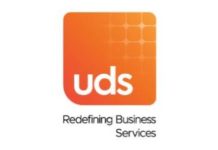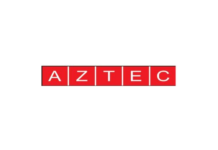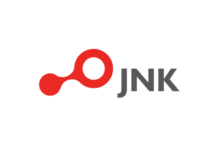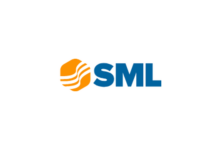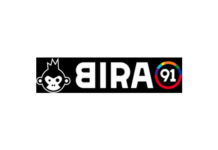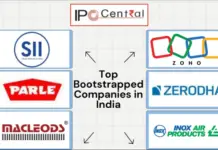Here is the collection of all share buybacks 2023 in India. This list of the latest buyback offers has been updated with vetted corporate developments from stock exchanges and SEBI.

Share Buybacks 2023 in India (Tender)
| Company Name | Record Date | Buyback Dates | Buyback Price (INR) | Premium (%) |
| Somany Ceramics | 15 Dec | 21 - 28 Dec | 850 | 28.96 |
| SIS | 12 Dec | 18 – 22 Dec | 550 | 13.08 |
| TCS | 25 Nov | 1 - 7 Dec | 4,150 | 14.95 |
| GNFC | 24 Nov | 1 - 7 Dec | 770 | 11.36 |
| Sinclairs Hotels | 29 Sep | 6 - 12 Oct | 200 | 24.81 |
| Siyaram Silk Mills | 18 Sep | 25 Sep – 3 Oct | 650 | 18.40 |
| BSE | 14 Sep | 21 - 27 Sep | 1,080 | NA |
| Larsen & Toubro | 12 Sep | 18 - 25 Sep | 3,200 | NA |
| KRBL | 25 Aug | 31 Aug – 6 Sep | 500 | 21.15 |
| Piramal Enterprises | 25 Aug | 31 Aug – 6 Sep | 1,250 | 16.52 |
| FDC | 25 Aug | 31 Aug – 6 Sep | 500 | 33.76 |
| IndiaMART | 25 Aug | 31 Aug – 6 Sep | 4,000 | 37.96 |
| Control Print | 18 Aug | 24 - 30 Aug | 800 | 25.04 |
| Aarti Drugs | 4 Aug | 9 - 17 Aug | 900 | 76.99 |
| Ashiana Housing | 28 Jul | 2 – 8 Aug | 301 | 51.75 |
| Goldiam International | 21 Jul | 27 Jul - 2 Aug | 150 | 12.74 |
| James Warren | 18 Jul | 24 - 28 July | 250 | 4.17 |
| Amrutanjan | 13 Jul | 19 – 25 July | 900 | 22.28 |
| Wipro | 16 Jun | 22 - 30 Jun | 445 | 18.87 |
| Axita Cotton | 2 Jun | 8 - 14 Jun | 56 | 96.91 |
| Hinduja Global | 6 Mar | 22 May - 2 Jun | 1,700 | 20.9 |
| TeamLease Services | 3 Apr | 12 - 25 May | 3,050 | 31.0 |
| Welspun India | 10 May | 16 - 22 May | 120 | 37.84 |
| Symphony | 29 Mar | 3 - 17 May | 2,000 | 90.9 |
| Godawari Power | 31 Mar | 10 - 17 Apr | 500 | 28.8 |
| Ajanta Pharma | 24 Mar | 31 Mar - 10 Apr | 1,425 | 17.2 |
| Welspun Enterprises | 13 Feb | 16 - 31 Mar | 200 | 20.2 |
| Sportking India | 10 Feb | 15 - 28 Mar | 950 | 34.06 |
| Abirami Financial | 27 Jan | 14 - 29 Mar | 28 | 22.91 |
| VRL Logistics | 10 Feb | 13 - 27 Mar | 700 | 34.5 |
| SoftSol India | 13 Jan | 3 - 17 Mar | 170 | 7.73 |
| Jagran Prakashan | 6 Jan | 2 - 16 Mar | 75 | 2.67 |
| Triveni Engineering | 23 Dec | 16 Feb - 1 Mar | 350 | 26.28 |
| eClerx Services | 27 Dec | 3 - 16 Feb | 1,750 | 27.25 |
| Technocraft Industries | 30 Dec | 1 - 14 Feb | 1,000 | 20.89 |
| Kama Holdings | 23 Dec | 31 Jan - 13 Feb | 14,500 | 6.33 |
| Tips Industries | 30 Dec | 27 Jan - 9 Feb | 2,600 | 42.56 |
| Cosmo First | 14 Dec | 27 Jan - 9 Feb | 1,070 | 29.18 |
| Triveni Turbine | 23 Dec | 17 - 31 Jan | 350 | 23.72 |
Share Buybacks 2023 in India (Open Market)
| Company Name | Buyback Dates | Max Buyback Price (INR) | Premium (%) |
| CL Educate | 21 Aug – 28 Nov | 94 | 22.41 |
| Emami | 13 Apr - 5 Jul | 450 | 24.7 |
| Natco Pharma | 21 Mar - 12 May | 700 | 23.2 |
| KDDL | 25 Jan - 9 Feb | 1,200 | 12.39 |
| VLS Finance | 16 Jan - 25 May | 200 | 24.7 |
| IEX | 11 Jan - 15 Mar | 200 | 32.9 |
| Paytm | 21 Dec - 13 Feb | 810 | 50.14 |
| Freshtrop Fruits | 20 Dec - 7 Feb | 115 | 22.0 |
| Bajaj Consumer | 19 Dec - 13 Apr | 240 | 33.6 |
| Infosys | 7 Dec - 13 Feb | 1,850 | 30.3 |
Share buybacks in 2023 showed a marked preference in favour of the tender route. For the full-year, we see that a total of 39 buybacks were announced and undertaken by different companies. Interestingly, these buybacks were conducted at an average premium of 28.5% over the prevailing market price.
As many as 10 buybacks were also conducted under the open market route. These open market share buybacks in 2023 were conducted at market prices which tend to be lower than the maximum buyback prices.
This list of buybacks in 2023 includes all such buybacks which have closed in 2023, even if the event started in 2022.
What is a Buyback of Shares?
A share buyback, aka share repurchase, is a financial strategy employed by companies to reduce the number of outstanding shares in the secondary markets i.e. stock markets. It is important to note that nowadays, unlisted startups also engage in share buybacks. Nevertheless, this article is all about the buyback of shares in the listed space.
Share repurchases are typically accomplished by purchasing shares from existing shareholders, either through the open market or through a tender offer. In simple words, buybacks perform the opposite function of IPOs where a company issues shares to investors.
Stock buybacks are often undertaken when the management feels that the true value of the business is not reflected in the stock price. As such, buybacks act as catalysts to boost stock prices. Investors can participate in share buybacks of fundamentally sound companies and can get handsome returns in relatively short periods.
Read Also: What is a Single Share Buyback Strategy and How to Benefit from it?
What is the need for stock buybacks? What do companies gain by purchasing their shares?
There are several reasons why a company might opt to buy back its shares. Here are the three most important reasons:
- Buybacks enhance the company’s financial performance as the shares purchased are eventually canceled. This reduces the number of shares outstanding, in turn boosting the company’s earnings per share (EPS). The cascading effect of this event is seen in valuation metrics such as the Price/Earnings ratio which are regularly tracked by investors.
- Share buybacks are often undertaken when the management feels the true value of the business is not reflected in the stock price. A company seen as purchasing its shares at a premium to market prices is generally viewed in a positive light by investors. As such, buybacks act as catalysts to boost stock prices.
- Companies also undertake stock buybacks as a measure to distribute excess cash to shareholders. If a company has more cash on hand than it needs to operate its business, it may choose to utilize some of that cash to buy back its shares. With the introduction of the Finance Act 2020 and the taxability of dividends in the hands of shareholders, investors have started preferring buybacks given the tax benefits associated with this route.
Investors can participate in share buybacks of fundamentally sound companies and can get handsome returns in a short span of time.
This is a developing page of buyback news. Please share your feedback in the comments section and let us know what else you would like us to cover in share buybacks.

Share Buybacks FAQs
What is the entitlement ratio in buybacks?
Entitlement ratio simply define the minimum ratio of shares that a company would need to purchase from its shareholders. For example, an entitlement ratio of 5/51 means that the company would purchase at least 5 shares from a shareholder who owns 51 shares. Nevertheless, the company may end up purchasing more shares from such shareholders if other investors don’t tender their shares.
What is the record date in share buybacks?
The record date defines an investor’s eligibility to participate in a share buyback. If an investor wants to participate in a buyback, s/he needs to have the shares in his/her demat account as on the record date.
Once approved, how long can a company conduct a buyback?
In India, buybacks need to be approved through a Special Resolution or a Board Resolution. A company must complete the buyback within a period of one year from the approval date.
What is the acceptance ratio in stock buybacks?
Acceptance ratio denotes the number of shares a company purchases from a shareholder against his/her entitlement.









